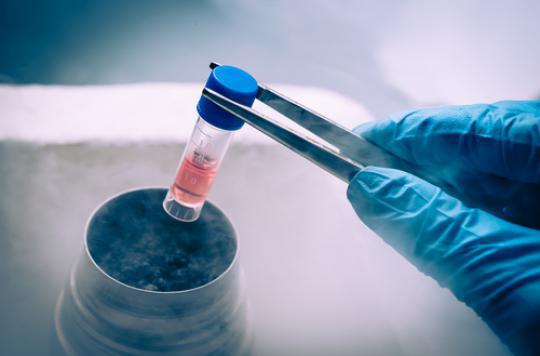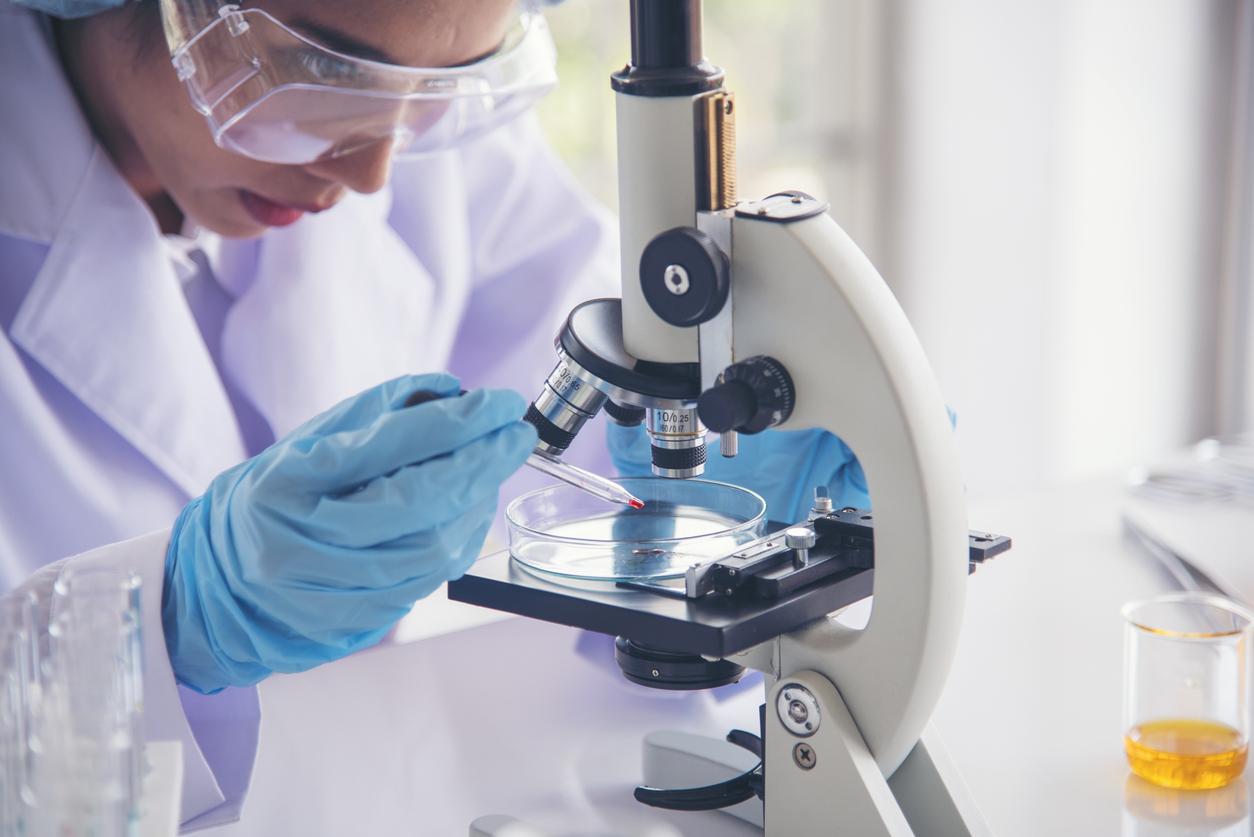INTERVIEW – Scientists want to artificially manufacture human cells. A project that could give birth to “superb babies”, without biological parents.

It is a project that will certainly spill liters of ink. American researchers unveiled this Thursday in the journal Science the work they planned to carry out. Called “Human Genome Project-Write”, the project consists of manufacturing from scratch, ex nihilo, a synthetic human genome.
“The potential applications of the HGP-write results include the possibility of creating human organs for transplants and producing cell lines resistant to all viruses and cancers”, enthuses the team, led by George Church, professor of genetics at Harvard and Jef Boeke, New York University.
These statements were quick to bring the scientific community out of its hinges. In several media, researchers are alarmed about a project that could eventually give birth to children without biological parents, from an artificially made human cell. By waving the specter of Frankenstein, they fear that the creature will overtake its creator … Fictitious paranoia or well-founded concerns?
Laurent Alexandre’s responses, president of DNA Vision, a company specializing in genome sequencing and expert in science of the future.
What is the scientific interest of this project?
Dr Laurent Alexander : The project consists of doing for the human genome what Craig Vanter did for bacteria six years ago. In this case, it is about starting from scratch and making artificial chromosomes by assembling the three billion base pairs, with the aim of creating a cell. On the bacteria, this represented less than a million bases of DNA. For human chromosomes, it is much more complex.
We are therefore preparing to create life chemically. From a scientific point of view, creating tabula rasa human cells has a multitude of applications. The first step is to experience the lab. But it will also make it possible to test many new types of genomes, to add genes that do not exist in humans … In fact, it will allow infinite combinations of manipulation of living things. Ultimately, it is indeed a question of making a baby without parents. We are crossing a red line in relation to current ethical criteria.
Why would these scientists have this thought behind their heads?
Dr Laurent Alexander : As long as you make a human cell from scratch, you can create a human being, even if that won’t be possible for at least two or three decades. I think that is clearly the goal of the team. George Church is a transhumanist, he favors the use of technology to modify our humanity.
Last year he proposed to resuscitate Neanderthal man. He wrote a book in 2012 on synthetic biology, in which he explains that we can completely change our biological nature thanks to technologies of genetic modification. He is a deeply iconoclastic, transhumanist and transgressive boy, who does not have many limits.
Laurent Alexandre, specialist in technologies and genetics: ” In the United States, few researchers are not transhumanists. The entire ecosystem of Harvard and Sillicon Valley is infested by transhumanists.“
Are the ethics committees likely to authorize this project?
Dr Laurent Alexander : If the project is refused in Boston, it will be validated in China or in an exotic country. Without international consensus, it cannot be banned globally. Church will undoubtedly find a destination where ethics committees are more permissive.
Frankenstein was a monster; now Church wants to create a superman – a superbaby, perfect, superiorly intelligent, without biological or genetic defect. It is a further step in the eugenics race, the limits of which are hard to see. If we make “perfect” babies, what will become of humans made by the traditional method, who have their qualities, their faults, their potential but also their limits? How can humanity that is not genetically engineered resist in the face of perfect babies?
Transhumanists are hitting harder and harder. Public opinion does not appreciate the immensity of the ethical problems that lie before us for the next 25 years. You have to think a little bit before having babies without parents …
Laurent Alexander : ” In 30 years, it will be as easy to make a chromosome as it is to write an article in Word. “
.















